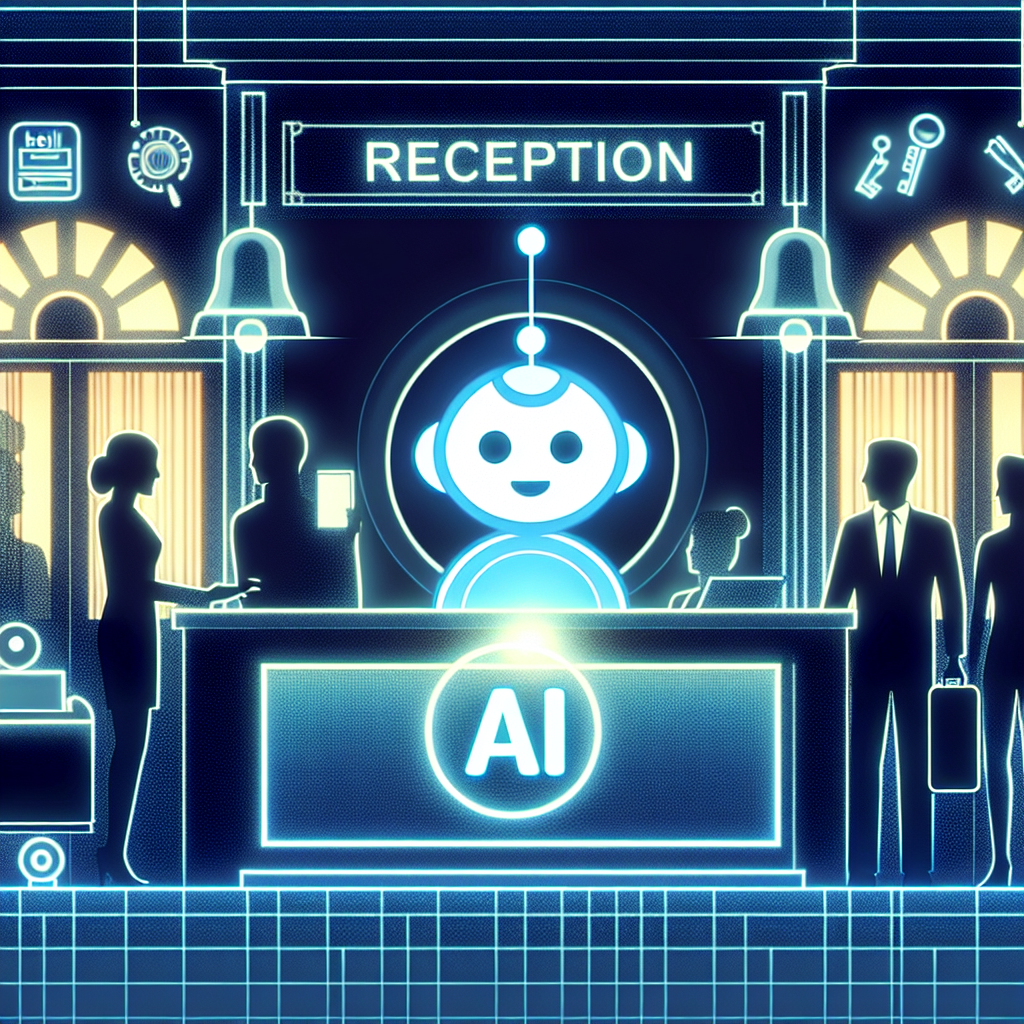The hospitality industry is constantly evolving to meet the needs and expectations of guests. One of the latest trends in customer service for hotels, restaurants, and other hospitality businesses is the implementation of AI chatbots. These virtual assistants are revolutionizing the way customers interact with businesses, providing instant responses to inquiries and offering personalized recommendations.
AI chatbots are computer programs that use artificial intelligence to simulate conversations with users. They can be integrated into websites, social media platforms, and messaging apps to provide instant customer support. In the hospitality industry, AI chatbots can help guests with booking reservations, answering questions about amenities, providing directions, and even recommending local attractions and restaurants.
Implementing AI chatbots for customer service in the hospitality industry offers several benefits for businesses:
1. Improved customer service: AI chatbots are available 24/7 to assist customers with their inquiries, providing instant responses and reducing wait times. This leads to higher customer satisfaction and loyalty.
2. Cost-effective: AI chatbots can handle a large volume of customer inquiries simultaneously, reducing the need for human customer service agents. This results in cost savings for businesses.
3. Personalized recommendations: AI chatbots can use data analytics to provide personalized recommendations based on a customer’s preferences and past interactions. This helps businesses offer a more tailored experience to their guests.
4. Increased efficiency: AI chatbots can automate repetitive tasks such as booking reservations and answering frequently asked questions, allowing human customer service agents to focus on more complex issues.
5. Scalability: AI chatbots can easily scale to handle a growing number of customer inquiries, making them a flexible solution for businesses of all sizes.
When implementing AI chatbots for customer service in the hospitality industry, businesses should consider the following best practices:
1. Understand customer needs: Before implementing an AI chatbot, businesses should analyze their customer inquiries and identify common questions and issues. This will help them design a chatbot that can effectively address customer needs.
2. Choose the right platform: Businesses should choose a platform that is user-friendly and easily integrates with their existing systems. Popular chatbot platforms include Chatfuel, ManyChat, and Dialogflow.
3. Train the chatbot: Businesses should provide training data to the chatbot to help it understand the language and context of customer inquiries. This will ensure that the chatbot can provide accurate and relevant responses.
4. Monitor performance: Businesses should regularly monitor the performance of their AI chatbot, tracking metrics such as response time, customer satisfaction, and user engagement. This will help them identify areas for improvement and optimize the chatbot’s performance.
5. Provide human backup: While AI chatbots can handle many customer inquiries, there will be situations where human intervention is necessary. Businesses should provide a seamless handoff to a human customer service agent when needed to ensure a positive customer experience.
FAQs:
Q: How can AI chatbots help hospitality businesses improve customer service?
A: AI chatbots can provide instant responses to customer inquiries, reducing wait times and improving customer satisfaction. They can also offer personalized recommendations based on customer preferences, leading to a more tailored guest experience.
Q: Are AI chatbots cost-effective for hospitality businesses?
A: Yes, AI chatbots can help hospitality businesses save costs by reducing the need for human customer service agents to handle repetitive tasks. They can also handle a large volume of customer inquiries simultaneously, making them a cost-effective solution for businesses of all sizes.
Q: How can businesses ensure that their AI chatbot provides accurate and relevant responses?
A: Businesses should provide training data to the chatbot to help it understand the language and context of customer inquiries. They should also regularly monitor the chatbot’s performance and make adjustments as needed to ensure that it provides accurate and relevant responses.
Q: Can AI chatbots handle complex customer inquiries?
A: While AI chatbots are designed to handle common customer inquiries, there will be situations where human intervention is necessary. Businesses should provide a seamless handoff to a human customer service agent when needed to ensure that complex customer inquiries are addressed effectively.
In conclusion, implementing AI chatbots for customer service in the hospitality industry offers numerous benefits for businesses, including improved customer service, cost savings, personalized recommendations, increased efficiency, and scalability. By following best practices and providing human backup when needed, businesses can successfully integrate AI chatbots into their customer service strategy and provide a seamless and personalized experience for their guests.

